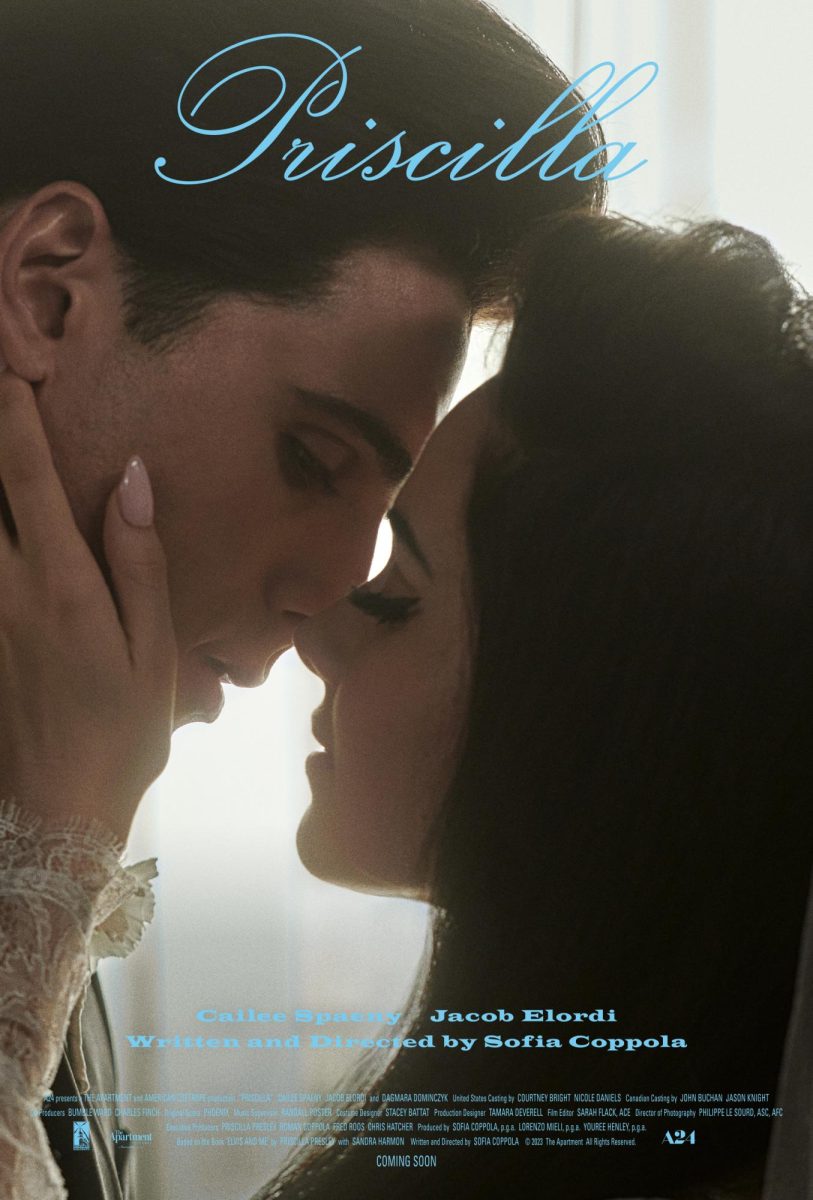Elvis Presley has been in public discourse in recent years regarding a myriad of things. There is the fact that Elvis built his career off of music and songs from Black singers like Big Mama Thornton in the titular song “Hound Dog.” There is also a consideration of how men with power and fame are represented and depicted on screen. Contrary to the reality of the story at hand which became apparent with the release of Baz Luhrmann’s maximalist and idealistic biopic “Elvis” last year. The release of “Priscilla” this year, directed by Sofia Coppola, is based on the book “Elvis and Me” by Priscilla Presley herself. The question of how we regard our icons of culture and history has been placed centerfold by telling her story. And it starts when she meets him at the age of fourteen years old.
A Perspective Unseen
“Priscilla” is brimming with aesthetic shots, costuming, makeup and set design. The initial montage is of Priscilla (Cailee Spaeny) applying her makeup, doing her hair and stepping onto a fluffy pink carpet. It then sharply shifts to a diner where a soldier greets her and asks if she likes Elvis Presley. He then proceeds to ask if she might want to meet him as he and his wife are friends of his. After much debate and negotiation with her parents, Priscilla goes to the party and meets the titular singer played by Jacob Elordi. He asks how old she is and she responds that she is in the ninth grade. He immediately shows a fondness for her and she negotiates herself back to seeing him again after that first initial night.
What is interesting here is that Coppola treats her subject and her story with delicacy and care to the point where nothing is sugarcoated. Yet, the interaction is so grounded that the audience is left to pick up the pieces on what they may see as a universally beloved icon of popular culture. Spaeny’s performance and delivery really shine through as this process takes place as we feel for her and are placed in her shoes. What follows are immaculately put-together scenes of poolside Graceland, and all of the environments Priscilla finds herself in. As well as living in the shadow of her eventual husband. The film is almost quiet and still despite the bombastic interior and exterior life of Elvis himself. The moments where his abuse shines through boil over to horrifying effect.
Is Elvis A Monster or Misunderstood?
“Priscilla” is keen to place every single scene throughout the film with care and a clear empathy for its subject. What’s fascinating about the whole film is how Coppola tenderly turns this story that we thought we all knew inside out and upside down. Priscilla isn’t just a victim in this story; she is a human being with desire, needs and autonomy. The music choice further bolsters the emotional arc of the film as it crescendos at the end with Dolly Parton’s “I Will Always Love You,” depicting the entire brevity of the story with and utmost care and respect that truly shines through. Priscilla shows us that even the people we admire could be monsters in the public eye.


